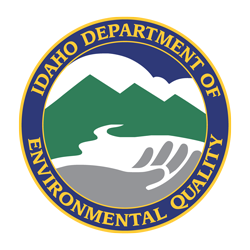DEQ’s Solid Waste Program oversees siting, design, and operation of many types of solid waste facilities.
This accordion will not appear on the screen
Landfills accepting municipal waste in Idaho are required to obtain DEQ approval of the facility location and design. Once approved, the public health districts perform operational oversight and regular inspections. Idaho currently has six lined municipal landfills and approximately 17 unlined municipal landfills. As Idaho’s population grows, counties are encouraged to regionalize solid waste disposal operations and share resources so that technology can be applied to protect ground water resources in rural and arid areas of the state.
Waste transfer stations are regulated under the “Solid Waste Management Rules” (IDAPA 58.01.06) as Tier II facilities. DEQ approves their siting and design, and the public health districts provide operational oversight. For more information, consult DEQ’s Guidance for Siting, Design, and Operations of Nonmunicipal Solid Waste Facilities in Idaho.
Construction and demolition landfills, industrial waste landfills, and any other specialty waste disposal facilities that do not accept municipal waste are regulated under IDAPA 59.01.06. DEQ approves the siting and design, and the public health districts provide operational oversight. For more information, consult DEQ’s Guidance for Siting, Design, and Operations of Nonmunicipal Solid Waste Facilities in Idaho in the resources below.
Waste processing facilities, including composting facilities, are regulated under IDAPA 59.01.06. For more information, consult DEQ’s Guidance for Siting, Design, and Operations of Nonmunicipal Solid Waste Facilities in Idaho. For composting facilities, consult DEQ’s Processing (Composting) Facility Guidance and Checklists for Tier II and Tier III Processing Facilities.
The term “nonmunicipal waste facility” refers to any solid waste facility that is regulated under IDAPA 58.01.06. Nonmunicipal waste facilities include waste incinerators, nonhazardous solid waste impoundment facilities where liquids and sludges are managed, facilities managing wood and mill yard debris, and very small quantity generator waste management facilities. For more information, consult DEQ’s Guidance for Siting, Design, and Operations of Nonmunicipal Solid Waste Facilities in Idaho in the resources below.

